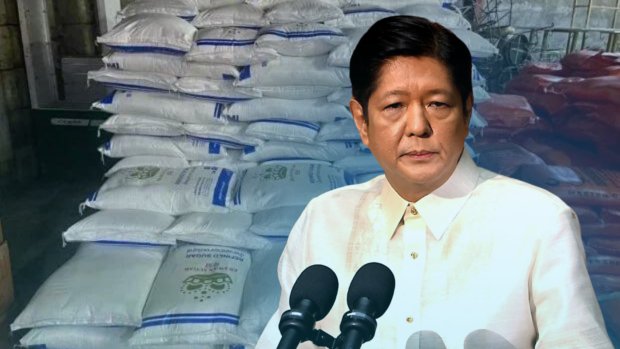
MANILA, Philippines — President Ferdinand “Bongbong” Marcos Jr. on Wednesday announced that the government has already agreed on a schedule for the importation of up to 150,000 metric tons of sugar, but added that locally produced sugar will be “favored.”
“We agreed on an importation schedule and how we will open up the importation to all of the traders. Bahala na silang mag-bid o magbigay ng kanilang mga proposal,” he said in a video message after meeting all stakeholders in the sugar industry.
(It’s up to them how they will bid or give their proposals.)
He, however, assured the public and sugar farmers that locally produced sugar would be “favored” in the market, expressing hope that the Philippines would not need to import all 150,000 metric tons if local production is good.
“We will still continue to favor in terms of buying local production over importation. ‘Yun ang talagang kailangang balanse diyan, kailangan naman kumpleto naman ang ating suplay ng asukal ngunit dapat naman lahat ng production na galing dito sa Pilipinas, ‘yan ang unang binibili,” Marcos said.
(That’s what we need to balance: we need to complete the supply of sugar in the country, which will be through importation, but we need to prioritize local sugar.)
The President said it was also discussed during the meeting the identification of areas that would be categorized as “sugar land” in a bid to increase production.
Marcos earlier approved the additional importation of sugar following the Sugar Regulatory Administration’s (SRA) recommendation to stabilize the price and boost the country’s stock.
During the meeting, it was also suggested to “revitalize” the Philippine Sugar Corporation, which provides financing for farmers, especially for cooperatives and farmers’ associations.
“Ngayon hindi sila masyadong nakakapagtrabaho dahil they tried to abolish the PhilSuCor. Ngunit hindi na-abolish, nandiyan pa sila kaya’t bubuhayin natin, at babaguhin natin,” Marcos said.
(For now, they are not able to fully function because there were efforts to abolish it. But this was not abolished, and they’re still there, so we will revive it and reform it.)
“Titingnan natin kung ano ‘yung mga pagbabago para makapag-adjust tayo dito sa sitwasyon natin ngayon and continue their work in providing assistance sa ating mga farmers, sa ating mga farmer groups,” he added.
(We will see what changes we can institute so that we can adjust to the situation and continue their work in providing assistance to our farmers and farmer groups.)
PhilSucor was created through Presidential Decree No. 1890 in 1983 to finance the acquisition, rehabilitation, and/or expansion of sugar mills, refineries, and other related facilities.
An order to abolish PhilSuCor was released on October 25, 2018, citing its overlapping functions with the Sugar Regulatory Administration (SRA).

